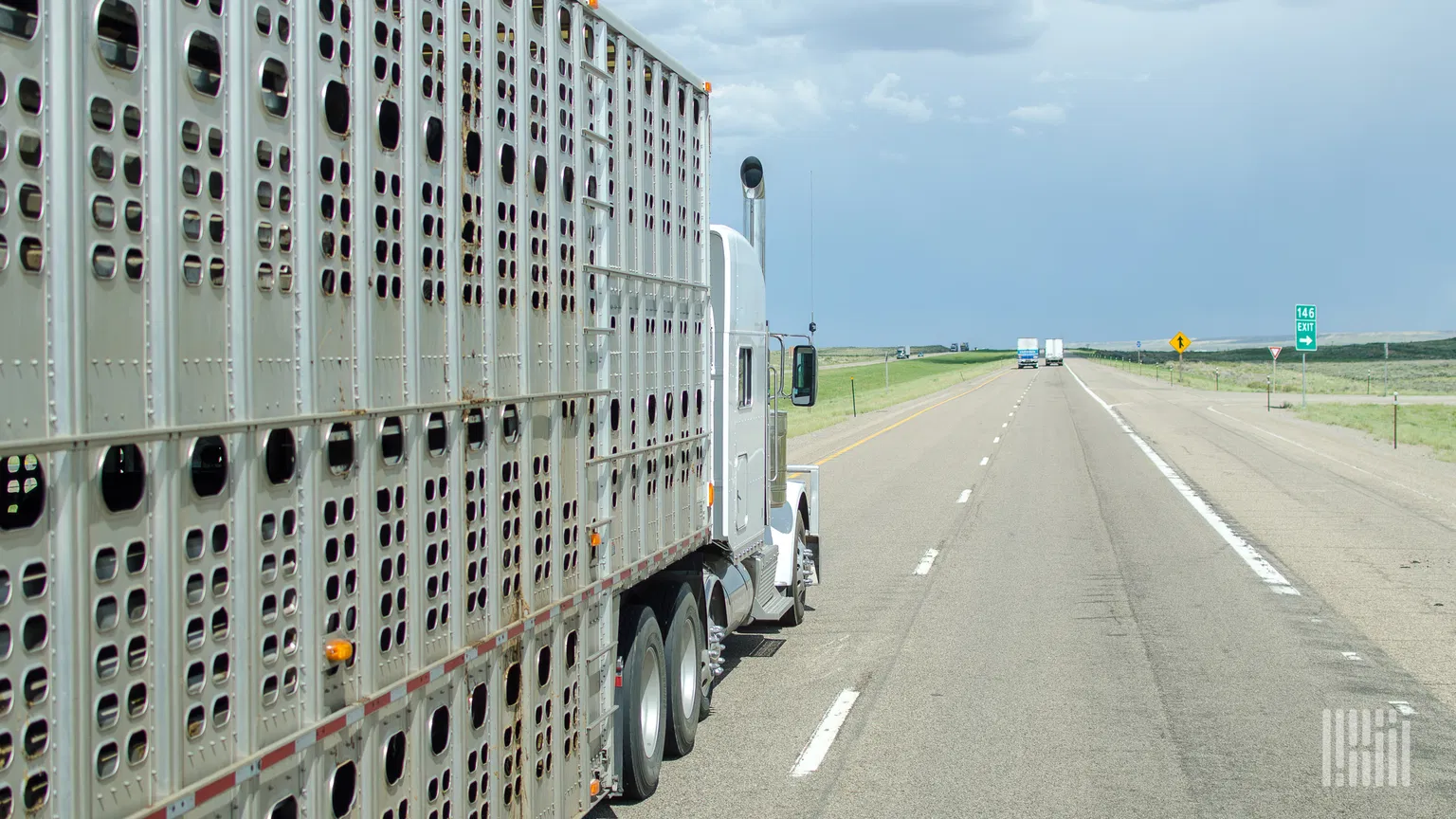Введение
Недавние изменения в законодательстве США открывают прекрасные возможности для перевозчиков скота. Новые меры направлены на смягчение обременительных правил, которые в настоящее время регулируют время работы и электронные устройства регистрации для этих важных водителей.
Обзор нового законопроекта
Законопроект, известный как Закон об освобождении от перевозок для защиты скота (HELP), был представлен членом Палаты представителей США Джеффом Хёрдом из Колорадо. Это предложение направлено на предоставление перевозчикам скота дополнительных льгот в отношении правил, касающихся рабочего времени и обязанностей, связанных с электронными регистрирующими устройствами. Это важно, поскольку признает уникальные проблемы, с которыми сталкиваются те, кто перевозит живой груз.
Основные характеристики закона HELP
Предлагаемый законопроект разработан с учетом конкретных исключений. Как указано в проекте, законодательство указывает, что транспортные средства и водители, участвующие в перевозке домашнего скота, насекомых и водных животных, должны быть освобождены от:
- Правила, регулирующие время работы: Эти правила установлены Кодексом США и могут ограничивать способность водителя эффективно управлять транспортным средством.
- Требования к электронным устройствам регистрации: ELD стали стандартным требованием во многих грузовых операциях, но они могут не подходить для каждой ситуации, связанной с живыми животными.
Предпосылки и контекст
Ранее перевозчики скота уже пользовались льготами в отношении рабочего времени для сельскохозяйственной продукции при работе в радиусе 150 воздушных миль от источника скота. Закон об инвестициях в инфраструктуру и рабочих местах, вступивший в силу в 2021 году, еще больше расширил эти исключения, позволив водителям также быть свободными от правил в пределах 150 воздушных миль от их конечного пункта назначения.
Однако в 2022 году совместное ходатайство, представленное Национальной ассоциацией производителей говядины (NCBA) о предоставлении еще большего количества исключений, было отклонено Федеральным управлением безопасности автомобильного транспорта (FMCSA). Обоснованием FMCSA стало то, что стандарты безопасности, требуемые ассоциациями, добивающимися исключений, не были адекватно доказаны.
Поддержка и противодействие промышленности
Предложение получило значительную поддержку как от владельцев-операторов, так и от транспортных компаний, специализирующихся на перевозке скота. Тем не менее, важно отметить, что не все отраслевые органы поддерживают это законодательство. Критики, в том числе Национальный совет по безопасности на транспорте и Ассоциация перевозчиков комплектных грузов, выразили обеспокоенность по поводу возможных последствий для безопасности.
В соответствии с политическими приоритетами NCBA на 2025 год, организация стремится тесно сотрудничать с регулирующими органами для обеспечения более благоприятной среды для животноводов, добиваясь большей гибкости в графике работы и дальнейших отсрочек по требованиям к электронным устройствам регистрации (ELD).
Потенциальные последствия для сектора логистики
Введение HELP Act может иметь значительные последствия для сектора логистики, особенно в отношении транспортировки живых животных. Поскольку логистика фундаментально связана с транспортными правилами, ослабление ограничений на перевозку скота может упростить операции и повысить эффективность.
Преимущества предлагаемых изменений
Корректировки в нормативных актах могут привести к следующим преимуществам:
- Повышенная гибкость: перевозчики могут транспортировать животных таким образом, чтобы приоритетом было их благополучие, без стресса, вызванного строгими юридическими ограничениями.
- Операционная эффективность: Уменьшение ограничений электронной регистрации и часов обслуживания может улучшить сроки доставки, что позволит улучшить планирование логистики.
- Повышенная безопасность: поскольку водители чувствуют себя более комфортно с правилами, разработанными с учетом уникальных потребностей их груза, безопасность может фактически повыситься.
Заключение
Закон HELP представляет собой поворотный момент в регулировании деятельности перевозчиков скота и может позитивно повлиять на логистическую ситуацию. Хотя предложенные меры вызвали неоднозначную реакцию, остается сильная группа поддержки, подчеркивающая важность этих изменений.
Тем не менее, стоит отметить, что отзывы и обзоры различных групп могут не в полной мере отражать реальную ситуацию на местах. Личное участие в логистике транспортировки скота имеет первостепенное значение для понимания истинного влияния такой политики. Для предприятий, занимающихся грузовой логистикой, GetTransport.com предлагает эффективные, экономичные и гибкие решения, отвечающие широкому спектру транспортных потребностей, включая перевозку скота и крупногабаритных грузов.
В современной развивающейся логистической сфере GetTransport.com выделяется, предоставляя надежные решения для доставки, которые позволяют предприятиям эффективно управлять своей логистикой. Планируете ли вы переезд офиса, доставку груза или транспортировку тяжелых предметов, у GetTransport.com есть ресурсы для удовлетворения ваших потребностей. Начните планировать свою следующую доставку и обеспечьте сохранность своего груза с GetTransport.com.

 Новый закон об облегчении правил перевозки скота">
Новый закон об облегчении правил перевозки скота">